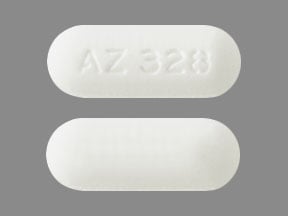
Tylenol Extra Strength Coupons & Savings Card – Discount Prices from $4.98
Brand for: Acetaminophen
My prescription
Edit
500MG, Acetaminophen (30 Tablets)
Select pharmacy

Walgreens
$4.98
COUPON PRICE
Albertsons
$4.98
COUPON PRICETylenol Extra Strength savings card
Show this card to your pharmacist
Walgreens
$4.98
BIN
ID
PCN
GRP
011867
LH6301098C
HT
LABH001
Powered by
More prescriptions for pain
More prescriptions for pain
Price history for Tylenol Extra Strength (brand) & Acetaminophen (generic)
30 Tablets, 500MG
Average retail price for Tylenol Extra Strength
Average retail price for Acetaminophen
Average SaveHealth price for Acetaminophen
Our price history data is based on aggregated prescription data collected from participating pharmacies in America. Our prescription data updates daily to reflect the latest price changes. If you notice a missing data point, it means there wasn't sufficient data available to generate a monetary value for that date.
Over the last 12 months, the average discount price of Tylenol Extra Strength is $3.49 using the SaveHealth savings card. That's an average savings of 50.91% on Tylenol Extra Strength with our discount card.
*Retail prices are based on pharmacy claims data, and may not be accurate when we don't have enough claims.
Tylenol Extra Strength (Acetaminophen) dosage forms
Dosage Quantity Price from Per unit 500MG 30 Tablets $9.81 $0.33 500MG 10 Tablets $9.27 $0.93 500MG 12 Tablets $9.33 $0.78 500MG 15 Tablets $9.41 $0.63 500MG 20 Tablets $9.54 $0.48 500MG 24 Tablets $9.65 $0.40 500MG 25 Tablets $9.68 $0.39 500MG 40 Tablets $10.08 $0.25 500MG 45 Tablets $10.22 $0.23 500MG 50 Tablets $10.36 $0.21
| Dosage | Quantity | Price from | Per unit |
|---|---|---|---|
| 500MG | 30 Tablets | $9.81 | $0.33 |
| 500MG | 10 Tablets | $9.27 | $0.93 |
| 500MG | 12 Tablets | $9.33 | $0.78 |
| 500MG | 15 Tablets | $9.41 | $0.63 |
| 500MG | 20 Tablets | $9.54 | $0.48 |
| 500MG | 24 Tablets | $9.65 | $0.40 |
| 500MG | 25 Tablets | $9.68 | $0.39 |
| 500MG | 40 Tablets | $10.08 | $0.25 |
| 500MG | 45 Tablets | $10.22 | $0.23 |
| 500MG | 50 Tablets | $10.36 | $0.21 |
| 500MG | 60 Tablets | $10.63 | $0.18 |
| 500MG | 90 Tablets | $11.44 | $0.13 |
| 500MG | 100 Tablets | $11.71 | $0.12 |
| 500MG | 175 Tablets | $13.74 | $0.08 |
| 500MG | 250 Tablets | $15.78 | $0.06 |
| 500MG | 300 Tablets | $17.13 | $0.06 |
| 500MG | 500 Tablets | $31.50 | $0.06 |
| 500MG | 700 Tablets | $36.97 | $0.05 |
| 500MG | 1000 Tablets | $45.10 | $0.04 |
Is Tylenol Extra Strength better than ibuprofen?
The choice between Tylenol Extra Strength (acetaminophen) and ibuprofen depends on the individual's specific needs and medical conditions. Tylenol is often preferred for reducing fever and relieving mild to moderate pain without causing stomach irritation. It is generally considered safer for individuals with certain conditions, such as those with a history of stomach ulcers or bleeding disorders.Ibuprofen, on the other hand, is a nonsteroidal anti-inflammatory drug (NSAID) that not only relieves pain and reduces fever but also decreases inflammation. It may be more effective for conditions involving inflammation, such as arthritis or muscle injuries.It is important for individuals to consider their health history, any other medications they are taking, and to consult with a healthcare professional to determine which medication is more appropriate for their situation.
Which is harder on your kidneys, Tylenol or ibuprofen?
Ibuprofen is generally considered to be harder on the kidneys compared to Tylenol (acetaminophen). Nonsteroidal anti-inflammatory drugs (NSAIDs) like ibuprofen can reduce blood flow to the kidneys, potentially leading to kidney damage, especially with long-term use or in individuals with pre-existing kidney issues. Tylenol, on the other hand, is primarily metabolized by the liver and is less likely to affect kidney function. However, it is important to use both medications as directed and consult a healthcare professional for personalized advice.
Can you take extra strength Tylenol with gabapentin?
Yes, it is generally safe to take extra strength Tylenol (acetaminophen) with gabapentin. There are no known direct interactions between these two medications. However, it is always advisable to consult with a healthcare provider before combining medications to ensure it is appropriate for the individual's specific health conditions and other medications they may be taking.
Can Tylenol cause diarrhea in adults?
Yes, Tylenol (acetaminophen) can cause diarrhea in adults, although it is not a common side effect. If diarrhea occurs and is persistent or severe, it is advisable to consult a healthcare professional.
What is the purpose of Tylenol Extra Strength?
Tylenol Extra Strength is used to relieve mild to moderate pain, such as headaches, muscle aches, arthritis, backache, toothaches, and menstrual cramps. It is also used to reduce fever.
